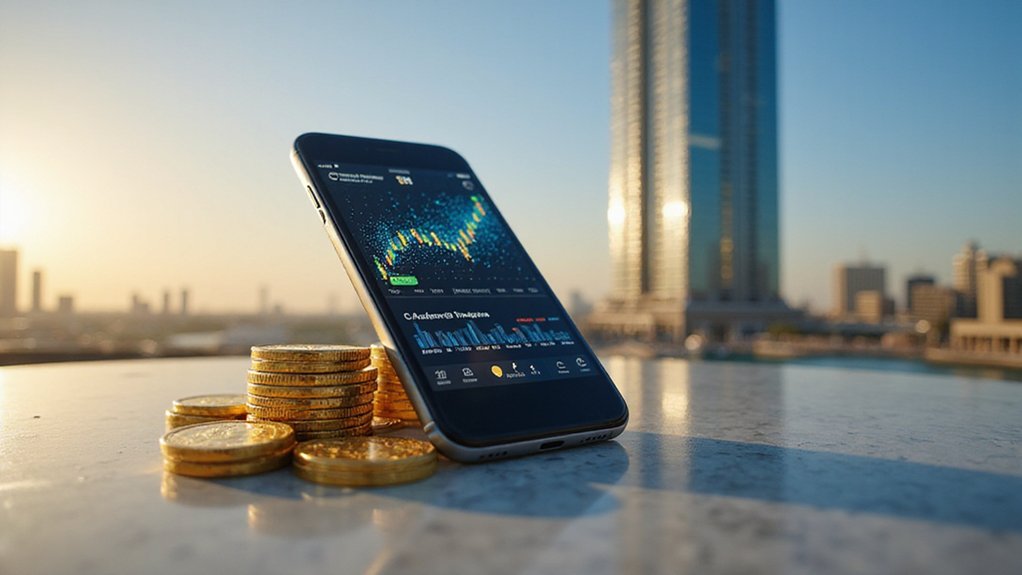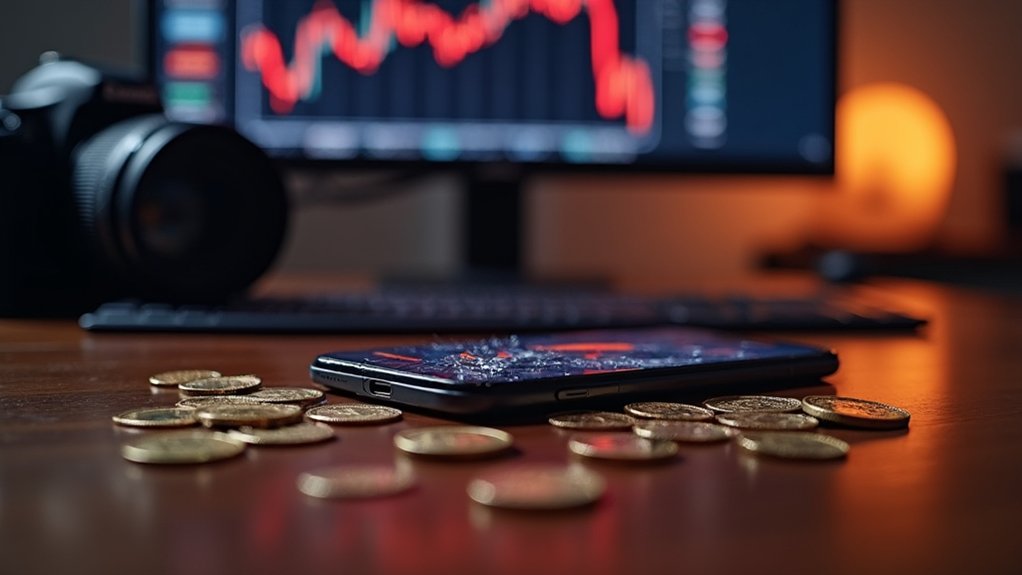While traditional stock markets continue to operate within their antiquated 9:30 AM to 4:00 PM constraints—a schedule that somehow persists despite the global economy’s decidedly non-American operating hours—tokenized Xstocks on Solana have emerged as a peculiar yet logical evolution in financial infrastructure.
Kamino’s integration of these blockchain-based securities represents more than mere technological novelty; it fundamentally reimagines how investors can deploy equity positions as active collateral within decentralized finance protocols. Each Xstock token maintains 1:1 backing with real U.S. stocks and ETFs held by licensed custodians like Backed Finance, ensuring that this isn’t another exercise in speculative tokenomics but rather a legitimate bridge between traditional equities and programmable money.
This isn’t another exercise in speculative tokenomics but rather a legitimate bridge between traditional equities and programmable money.
The mechanics prove surprisingly elegant: investors can now use fractional ownership of Apple, Tesla, or Nvidia shares as collateral for loans, liquidity provision, or yield strategies within Kamino’s ecosystem. This development effectively transforms static equity holdings into dynamic financial instruments that can generate returns beyond dividend payments and capital appreciation—assuming, of course, that one can navigate the regulatory labyrinth that restricts U.S. participants from accessing tokenized versions of their own domestic securities.
Solana’s blockchain infrastructure provides the necessary speed and cost-effectiveness for these operations, enabling transactions that would be prohibitively expensive on other networks. The platform’s integration with DeFi protocols like Raydium and Jupiter expands utility beyond simple holding, allowing sophisticated strategies that combine equity exposure with liquidity mining and automated market making. Since Web3 wallets function as interfaces that display network gas fees rather than collect their own transaction fees, users can benefit from Solana’s notably lower costs compared to Ethereum’s expensive network fees.
Perhaps most intriguingly, these tokenized assets operate 24/7 (barring weekends), finally acknowledging that financial markets might benefit from aligning with global business cycles rather than Manhattan’s commuting schedule. Users across 185 countries can access these instruments through platforms like Kraken and Bybit, though the irony of Americans being excluded from tokenized versions of American companies remains deliciously absurd. The instant settlement capability on both platforms eliminates the traditional T+2 settlement delays that plague conventional stock transactions.
The regulatory compliance framework, anchored by EU’s MiFID II directive, provides legitimate institutional backing while enabling self-custody through wallets like Phantom. This development suggests that real-world asset tokenization has moved beyond experimental phases into practical implementation, offering genuine utility for portfolio diversification and capital efficiency within decentralized financial ecosystems.









